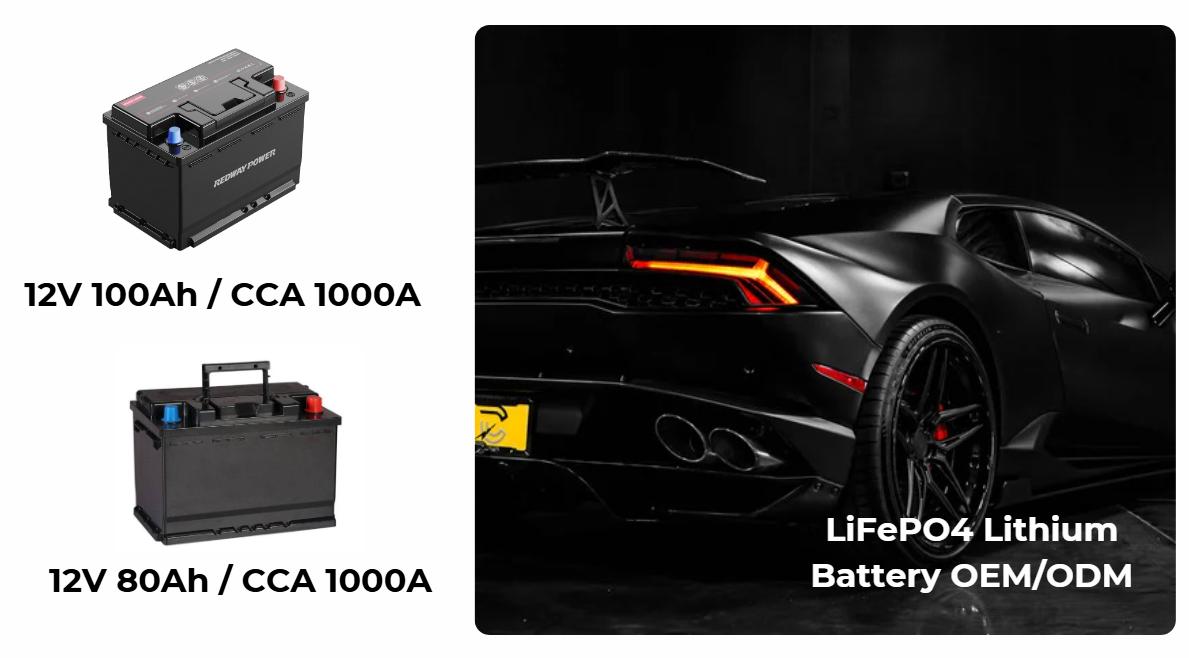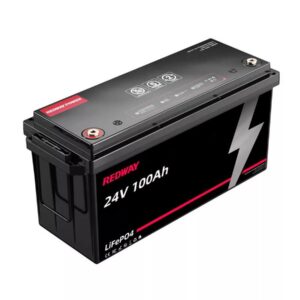
How Do Duracell and Interstate Car Batteries Compare?
Duracell and Interstate car batteries are both respected for reliability, but Interstate is known for longer lifespan, higher reserve capacity, and stronger cold-weather performance. Duracell offers affordability and solid warranties, while Interstate commands a higher price for premium longevity and service. Redway ESS recommends evaluating your climate, driving habits, and budget to choose the best fit.
What are the key differences in battery technology between Duracell and Interstate?

Duracell uses Enhanced Flooded Battery (EFB) and Absorbent Glass Mat (AGM) technologies, offering strong power for modern vehicles and start-stop systems. Interstate also employs advanced AGM and proprietary LifeGrid technology, enhancing stability and extending battery life. Both brands deliver maintenance-free, sealed designs, but Interstate’s technology is often favored for its robust performance in demanding conditions.
Chart: Duracell vs. Interstate Battery Technology
| Feature/Tech | Duracell | Interstate |
|---|---|---|
| EFB/AGM | Yes (wide range) | Yes (premium models) |
| Proprietary Tech | Advanced grid, EFB, AGM | LifeGrid, AGM |
| Maintenance-Free | Yes | Yes |
| Start-Stop Ready | Yes (AGM/EFB models) | Yes (AGM models) |
How do Duracell and Interstate compare on cold cranking amps (CCA) and cold-weather performance?
Duracell batteries offer high CCA ratings (550–900), ensuring reliable starts in most climates. Interstate batteries, however, frequently exceed 1,000 CCA in premium models, making them especially popular in regions with harsh winters. Interstate’s superior CCA performance provides quicker, more dependable starts in extreme cold.
Which brand offers better reserve capacity and why does it matter?
Reserve capacity (RC) measures how long a battery can power a vehicle’s electronics if the alternator fails. Duracell batteries typically offer 90–150 minutes of RC, suitable for most vehicles. Interstate batteries often exceed 120 minutes, with some models outperforming Duracell, making them ideal for newer cars with greater electrical demands.
What is the typical lifespan for Duracell and Interstate car batteries?
Duracell batteries generally last 3–5 years under normal use, while Interstate batteries often reach 4–7 years, especially in moderate climates. Interstate’s longer lifespan is attributed to its LifeGrid technology and robust internal construction. Redway ESS notes that proper maintenance and charging habits are crucial for maximizing any battery’s service life.
How do the warranties and customer support compare?
Duracell batteries come with 2–5 year limited warranties, with responsive customer service through East Penn Manufacturing. Interstate batteries offer 3–6 year warranties, supported by a vast dealer network for quick replacements and service. Interstate’s broader support and longer coverage are advantages for those seeking peace of mind.
Duracell batteries come with a 2 to 5-year limited warranty, backed by responsive customer service through East Penn Manufacturing, known for efficient claim processing and support. Their warranties typically cover free replacements within the initial years, providing peace of mind for everyday users. Duracell batteries are designed for solid performance and durability, but their warranty periods tend to be shorter compared to some competitors. Customer support is reliable, though more regionally focused, which suits users who prioritize straightforward service and trusted brand reputation.
On the other hand, Interstate batteries offer longer warranty coverage, ranging from 3 to 6 years, depending on the model, with some warranties including prorated periods extending beyond the free replacement phase. Interstate’s extensive dealer network across the country ensures quick and convenient replacements, making it easier for customers to access support and service. This broader warranty and support system is a significant advantage for those seeking extended protection and faster service turnaround, especially in demanding or commercial applications. Overall, Interstate’s longer coverage and widespread support provide an extra layer of confidence for buyers looking for durability and hassle-free maintenance.
Are Duracell or Interstate batteries more affordable?
Duracell batteries are generally more budget-friendly, offering good value for quality and warranty. Interstate batteries are more expensive, reflecting their extended lifespan, higher performance, and premium service network. Redway ESS suggests weighing upfront cost against total cost of ownership, especially if you plan to keep your vehicle for many years.
Which brand is easier to find and purchase?
Both Duracell and Interstate batteries are widely available. Duracell is sold at major retailers, auto supply stores, and online. Interstate is distributed through a nationwide network of authorized dealers and service centers, making both brands accessible for most consumers.
What are the main pros and cons of Duracell and Interstate car batteries?
-
Duracell Pros: Affordable, reliable, maintenance-free, easy to find, good warranty.
-
Duracell Cons: Shorter lifespan, not as strong in extreme cold, shorter warranty than Interstate.
-
Interstate Pros: Longer lifespan, higher CCA and RC, robust warranty, extensive service network.
-
Interstate Cons: Higher price, may be overkill for mild climates or infrequent drivers.
Chart: Duracell vs. Interstate Pros and Cons
| Brand | Pros | Cons |
|---|---|---|
| Duracell | Affordable, reliable, wide availability | Shorter life, basic RC/CCA |
| Interstate | Long life, high RC/CCA, strong warranty/support | Expensive, not budget option |
Buying Tips
- Choose Duracell for affordability and reliable everyday performance.
- Opt for Interstate if you want maximum lifespan, higher reserve capacity, and superior cold-weather starting.
- Always match battery group size and specs to your vehicle’s requirements.
- Consider Redway ESS lithium options for ultimate longevity and eco-friendly performance.
Redway ESS Expert Views
“Duracell and Interstate both deliver dependable performance, but Interstate stands out for its longevity and cold-weather reliability. For drivers in harsh climates or with high electrical demands, Interstate is a solid investment. For budget-conscious buyers, Duracell remains a strong, reliable choice.”– Redway ESS Technical Team
Conclusion
Duracell and Interstate car batteries each have unique strengths. Duracell excels in affordability and broad compatibility, while Interstate leads in lifespan, reserve capacity, and cold-weather performance. Redway ESS recommends considering your climate, driving habits, and budget to select the best battery for your needs.
FAQs
Which battery lasts longer, Duracell or Interstate?
Interstate batteries typically outlast Duracell, with lifespans of 4–7 years compared to 3–5 years for Duracell.
Are Interstate car batteries worth the higher price?
Yes, if you want longer service life, better cold-weather starts, and a robust warranty.
Is Duracell a good car battery brand?
Yes, Duracell is reliable, affordable, and widely available, making it a great choice for most drivers.
Who makes Duracell and Interstate car batteries?
Duracell batteries are made by East Penn Manufacturing; Interstate batteries are produced by various manufacturers, including Johnson Controls and Exide.
Does Redway ESS recommend AGM or lithium batteries for cars?
Redway ESS recommends AGM for most vehicles and lithium for those seeking the longest lifespan and best performance.
